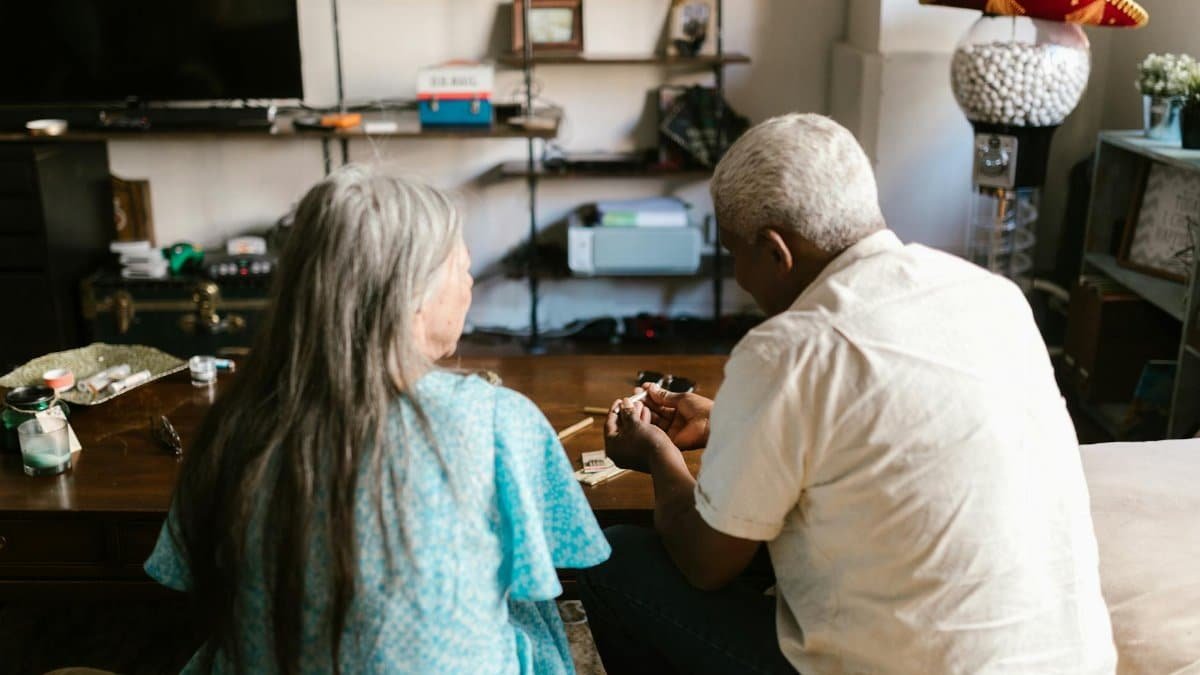What if the key to true contentment lies not in chasing an idealized version of yourself, but in embracing the flaws you’ve long tried to hide? This question has echoed through countless conversations lately, as more Americans grapple with the pressures of a perfection-driven culture. In therapy sessions, wellness retreats, and everyday chats, the idea of acceptance self-love emerges as a quiet revolution. It’s not about superficial affirmations or quick fixes. Instead, it invites a deeper reckoning with who we are, warts and all. Recent surveys show a growing number of people turning inward for solace amid external chaos. But how does this shift play out in real life? And why does it feel both elusive and essential in 2025?
The Roots of Inner Resistance

Many people find themselves battling an internal critic that never quiets down. This voice, often shaped by childhood experiences or societal expectations, whispers doubts about worthiness. Consider a middle-aged professional in Chicago, who shared anonymously online that years of corporate climbing left her feeling hollow. “I kept pushing for the next promotion, thinking it would make me feel complete,” she reflected. Only when she paused to question that drive did acceptance begin to take root.
Psychologists point to cognitive distortions as culprits here. These mental habits twist self-perception, making genuine self-love feel out of reach. A study from the American Psychological Association highlights how such patterns contribute to widespread anxiety. American Psychological Association Journals often explore these themes, showing links between self-criticism and mental health struggles.
Yet resistance isn’t just personal; it’s cultural. In a society that prizes achievement, admitting imperfections can seem like weakness. This tension creates a fertile ground for exploring acceptance, but it also demands patience. Breaking free starts with small acknowledgments, like noting a flaw without judgment.
Everyday Practices That Build Acceptance

Start with the mirror. Not the kind where you recite scripted positives, but one where you simply observe. A friend once described standing there, noticing the lines etched by time, and feeling a surprising wave of tenderness. It’s these unscripted moments that chip away at self-doubt.
Journaling offers another path. Writing down thoughts without censorship reveals patterns. Research from the University of Texas at Austin supports this, finding that expressive writing reduces stress. University of Texas at Austin Psychology Research details how such practices foster emotional resilience.
Don’t overlook movement. A gentle walk in the park can shift perspective, reminding you that the body is a vessel, not a project. Incorporate mindfulness apps or group classes, where shared vulnerability normalizes the journey. These habits accumulate, turning acceptance into a lived reality rather than an abstract goal.
Variety keeps it fresh. One day, try forgiveness exercises; another, celebrate a small win. The point is consistency without rigidity.
When Society Pushes Back

Acceptance self-love doesn’t exist in a vacuum. External forces, from social media filters to workplace demands, constantly challenge it. In 2025, with algorithms amplifying idealized lives, it’s easy to feel inadequate. A Pew Research Center report notes rising dissatisfaction among adults exposed to such content. Pew Research Center Internet Studies provides data on how digital habits influence self-image.
Take the story of a teacher in Atlanta. She confided in a public forum that comparing her real life to curated posts eroded her confidence. “It took unplugging for a week to remember my own value,” she said. This pushback highlights a broader trend: the need for boundaries in a connected world.
Communities can help counter this. Support groups or online networks focused on authenticity offer solidarity. Yet, they also reveal complexities, like when group norms inadvertently create new pressures. Navigating these requires discernment, ensuring that external validation doesn’t overshadow inner work.
The Role of Relationships in Self-Discovery

Relationships often mirror our self-view. A partner who celebrates your quirks can amplify acceptance, while toxic dynamics erode it. Think of a couple in Seattle who, after years of silent resentments, attended a workshop on compassionate communication. What emerged was not just better dialogue, but a deeper self-understanding for both.
Studies from Harvard’s Grant Study underscore this interplay. Decades of data show strong relationships correlate with personal well-being. Harvard Grant Study illustrates how interpersonal bonds shape long-term happiness.
Family ties add layers. Adult children reconciling with parental expectations might find acceptance blooms from forgiveness. Friendships, too, provide safe spaces for vulnerability. The key is reciprocity: giving and receiving support without keeping score. In this web of connections, self-love strengthens, revealing that we’re not islands.
Sometimes, solitude complements this. Balancing alone time with social engagement allows for reflection, ensuring relationships enhance rather than define your sense of self.
Overcoming Setbacks and Plateaus

No journey is linear. Plateaus hit when progress stalls, tempting a return to old habits. A setback might come from a job loss or health scare, shaking newfound acceptance. One anonymous account described spiraling after a breakup: “I thought I’d mastered self-love, but grief exposed the cracks.”
Resilience builds through reframing. Experts at the Mayo Clinic advise viewing failures as data points, not defeats. Their resources on emotional health emphasize adaptive coping. Mayo Clinic Resilience Guide offers practical strategies for bouncing back.
Professional help can be crucial. Therapy provides tools to navigate these dips, turning them into growth opportunities. Remember, setbacks affirm humanity; they’re not signs of failure. With time, they weave into a richer tapestry of self-understanding.
Acceptance in Professional Life

Workplaces increasingly recognize the value of self-acceptance. Companies like Google incorporate wellness programs that encourage it, leading to better productivity. A Gallup poll reveals employees with high self-regard report greater job satisfaction. Gallup Workplace Studies tracks these trends, showing links to retention and performance.
Imagine a manager in New York who embraced her introversion instead of faking extroversion. Meetings became more authentic, and her team thrived. This shift counters the hustle culture that dominates many U.S. industries.
Yet challenges persist. Gender biases or age discrimination can undermine confidence. Advocating for inclusive policies helps, as does mentoring others. In 2025, with remote work evolving, acceptance self-love becomes a tool for navigating uncertainty, fostering adaptability and innovation.
The Broader Cultural Shift

America is witnessing a quiet transformation. From celebrity memoirs to wellness podcasts, acceptance self-love permeates public discourse. It’s no longer fringe; it’s mainstream, influencing everything from education to policy.
Schools now teach emotional intelligence, planting seeds early. Community centers offer workshops, democratizing access. A report from the National Institutes of Health notes rising interest in mindfulness-based interventions. National Center for Complementary and Integrative Health funds research on these practices.
This shift isn’t without critics, who argue it promotes complacency. But proponents see it as empowerment, enabling action from a place of strength. As more voices join the conversation, the narrative evolves, reflecting diverse experiences across regions and backgrounds.
Embracing the Ongoing Journey

Acceptance self-love isn’t a destination; it’s a practice. It evolves with life stages, adapting to new realities. For middle-aged readers, this might mean reconciling with midlife changes, finding beauty in experience.
One woman’s story captures this: After decades of self-doubt, a simple act of kindness toward herself during illness sparked lasting change. “It was like meeting an old friend,” she said.
Looking ahead, trends suggest integration into daily routines will deepen. With resources abound, the path is more accessible than ever. Ultimately, it fosters not just personal peace, but a more compassionate society.
